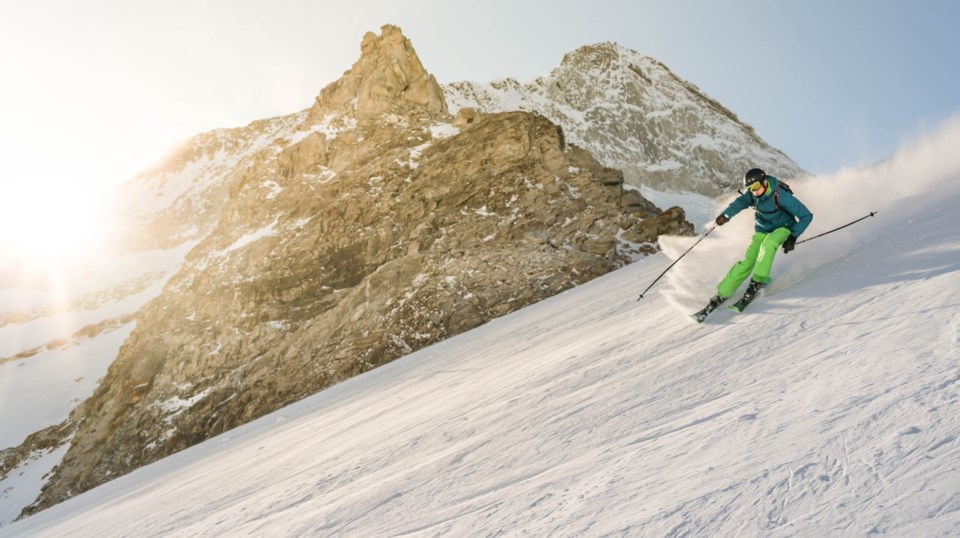Close your eyes and picture a typical skier. What do you envision?
This is one of the questions John Reid-Hresko will ask as part of his upcoming study of what skiing means.
Reid-Hresko, a social sciences professor at Quest University, has given skiing a lot of thought, both on and off the slopes. He's been skiing since he was three years old. That was also the year when Reid-Hresko, raised in a family of academics, began telling everyone he was going to get a PhD.
Years later, those two worlds are coming together as Reid-Hresko applies the research skills he honed earning his doctorate in environmental sociology to his latest project: who skies and why?
"I appreciate the narrative that we're all unique snowflakes in control of our destinies," he said. "I just don't think there's a ton of evidence that suggests that's accurate."
Instead, sociology studies how forces outside of our control shape life experiences. In this case, those forces determine our relationship with skiing.
"The class standing of the family into which we're born — which we have no control over — might shape the kinds of things we're exposed to as children and thus pursue as adults," he said.
One aspect of skiing that might be a non-issue for some and a barrier for others is the expense of the sport. Reid-Hresko points to the price of a lift ticket for Whistler Blackcomb as an example.
"It's not an accident that when you go to a place like Whistler, you see largely well-off white people."
Mountaineering's history has also been overwhelmingly white and male, Reid-Hresko points out, and gender stereotypes carry over into the ideas of conquering a mountain and controlling the landscape we ski on.
The Sea to Sky Corridor makes for the perfect case setting, where Reid-Hresko says many people have strong environmental and outdoor recreational ethics.
The idea of nature and wilderness, he said, has been tied to colonialism, capitalism and religion.
"That was really tied to notions of western expansionism in the U.S. and Canada during colonialism and settler periods —that we're preordained as Christian white people by God to go explore these untouched landscapes… and to control those environments," Reid-Hresko said.
"There's some sort of weird irony in going to Whistler and sitting on chairlifts to go to buildings put on the top of mountains to ski down runs that have basically been deforested — to connect with nature."
He guesses — since his study has not begun — that many backcountry skiers will say skiing off-resort is more peaceful, more natural, wilder and more sublime.
He wants to interview between 60 and 100 backcountry skiers about their relationship with the activity.
"I'm interested in how people who choose to spend their time and money in backcountry environments understand themselves, understand their relationship to other people, understand their relationship to place and environment and understand their relationship to the sport that they choose to participate in," Reid-Hresko said.
"For many of us, it goes far beyond basic recreation. It becomes something very important in our lives."
Reid-Hresko's sabbatical will start this September. In the meantime, he's also working with Quest's Jeff Warren on the relationship between mountain biking and how it's represented in media.
"I find it's a really exciting moment to think about how something that seems fairly unimportant, like why people go skiing, might actually offer a window into much larger social dynamics and provide a lens to better understand the way we see, but also the way we relate to each other and to ourselves."
This article originally appeared here.




